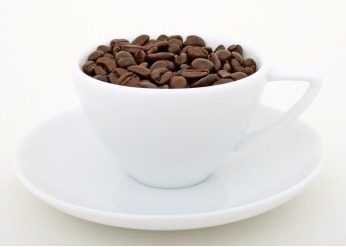The spread of Coffee in China China's own unique coffee culture
According to historical records, coffee trees were first planted in Taiwan in 1884, and coffee cultivation in mainland China began in Yunnan. In 1902, a French missionary named Tian introduced seeds from "Yingong" in Binchuan County, Yunnan Province. it was successfully planted in a place called Zhu Kula, a tributary of the Jinsha River.

The commercial cultivation of coffee in Yunnan began in 1985, but the development is slow. In 1995, the Yunnan provincial government formally put Yunnan coffee cultivation into the "18th" project, and coffee cultivation has developed rapidly, and now it has become the only raw material base for high-quality coffee in China, accounting for 95% of the country's total output.
In 1884, coffee was successfully grown in Taiwan.
In 1902, Chinese mainland successfully introduced and planted coffee in Binchuan, Yunnan Province.
In 1985, Yunnan Agricultural Reclamation began to grow coffee commercially.
In 1992, UNDP assisted China to build its first modern coffee processing plant, Yunnan Coffee Factory.
In 1995, the coffee industry was included in the innovative project of biological resources development in Yunnan.
In 2003, Yunnan became the only high-quality coffee raw material base in China.
In China, people like drinking coffee more and more. The "coffee culture" that follows is full of every moment of life. People are tasting coffee at home, in the office, or on various social occasions: it is gradually associated with fashion and modern life. Coffee houses everywhere have become good places for people to talk, listen to music and rest, and coffee has gradually developed into a culture. Whether it is freshly ground coffee beans or freshly brewed hot coffee, it exudes a rich aroma and makes people intoxicated. There are many ways to savor this intoxication: espresso, cappuccino, Latay, flavored coffee; they offer a variety of options for people who regularly patronize coffee shops in Beijing, Shangjiu and other big cities in China. Chinese people also gradually like to make their own coffee. Using roasted coffee beans, filter pots and filter paper to make a cup of fresh coffee also has a different taste.
As coffee is widely known as a drink with a long history, coffee is being accepted by more and more Chinese people. Some data show that China's coffee consumption is increasing year by year, and is expected to become an important coffee consumer in the world. Today, Yunnan coffee produced in China's own land, with its noble quality and low price, will promote this trend, guide this fashion, become the Chinese people's own coffee brand, and have China's own unique coffee culture.
Important Notice :
前街咖啡 FrontStreet Coffee has moved to new addredd:
FrontStreet Coffee Address: 315,Donghua East Road,GuangZhou
Tel:020 38364473
- Prev

There are three kinds of Greek coffee.
There are three kinds of coffee in Greece: espresso is an espresso, cappuccino is hot coffee with milk, and fredo is iced coffee with milk. At present, Greek coffee is not common in China, and its taste can be divided into three flavors: Skaito, Metrio and Gligi. Its cooking method is mainly based on a stainless steel pot called Briki
- Next

Coffee enema is suitable for people who do intestinal detoxification.
Bowel cancer is a high incidence of cancer. 75% of the body's detoxification is accomplished through defecation. Constipation will produce stools and produce a large amount of toxins in the body, which will lead to the occurrence of bowel cancer. Hunan Satellite TV's Encyclopedia said that it brings us a new method of large intestine detoxification. At present, colorectal detoxification is listed as an alternative therapy in Europe and the United States. Suitable for people who do intestinal detoxification: 1. Constipation, poor defecation or
Related
- Beginners will see the "Coffee pull flower" guide!
- What is the difference between ice blog purified milk and ordinary milk coffee?
- Why is the Philippines the largest producer of crops in Liberia?
- For coffee extraction, should the fine powder be retained?
- How does extracted espresso fill pressed powder? How much strength does it take to press the powder?
- How to make jasmine cold extract coffee? Is the jasmine + latte good?
- Will this little toy really make the coffee taste better? How does Lily Drip affect coffee extraction?
- Will the action of slapping the filter cup also affect coffee extraction?
- What's the difference between powder-to-water ratio and powder-to-liquid ratio?
- What is the Ethiopian local species? What does it have to do with Heirloom native species?

